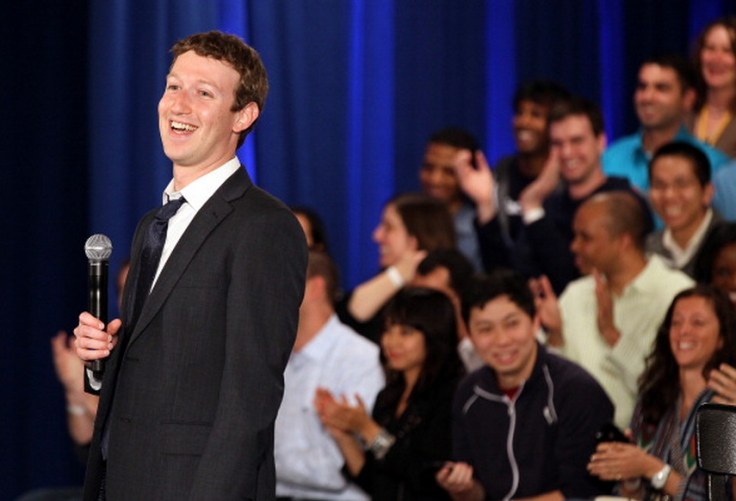Beyond LOL: Facebook's Collection, Analysis Of User Data No Laughing Matter

Facebook published a study last week analyzing the use of “laughter phrases” -- “haha,” “hehe,” “lol,” and emoji -- on the social network, in part inspired by a personal essay in the New Yorker on the subject. But the company's embrace of analytics, based on user data, extends much farther than one study and a magazine article.
Facebook has positioned itself as a trove of data from a wide spectrum of users, at least 1.49 billion of whom are active each month. Beyond being a company that generated $4 billion in revenue last quarter and funds flying drones that beam the Internet, Facebook has invested in a team of data scientists that can collect and analyze patterns from its engaged users. And it intends to profit from that information. To note, this particular study was deemed lighthearted and not revenue-making for the company.
The Facebook Data Science team’s official Facebook page explains that it can “build tools and provide support for anyone at Facebook who would like to use our platforms to help make data-driven decisions or build data-intensive products and services.”
The team's "lol study" was inspired by an April New Yorker article called “HAHAHA VS. HEHEHE” by contributor Sarah Larson. Facebook supplemented her anecdotes with hard data derived from its network. It found that "lol" is mostly dead as a term to signify laughter, supplanted by "Haha" and emoji.
Facebook has run my e-laughter post (http://t.co/ItlA777hgv) through some sort of machine. https://t.co/4fEkNQ4QIo
— Sarah Larson (@asarahlarson) August 10, 2015“So we see that there are patterns in laughter on Facebook, but they are quite different from the anecdotal evidence presented in the New Yorker article. Then it hit us: Maybe the difference is that Ms. Larson is hanging out with cool people from New York City.”
That realization led the Facebook team to plot a graph comparing “laughter phrases” in Boston, Chicago, New York, Phoenix, San Francisco and Seattle. For the curious, Phoenix has the highest fraction of people using “lol” on the network, and Chicago has the highest fraction using emoji.
The study raises the greater question of Facebook's power and role in data analyses.
It's not the first time the company has tapped into its data to publish studies, whether for its own general interest or others. Last week for the first Republican primary debate, Facebook and Fox News teamed up. The social network studied what users posted about the GOP candidates and 2016 election topics over the two months, and Fox News displayed graphs of the data and framed debate questions around the information.
Not every study has been well-received by the media and the public. Critics saw as manipulative and secretive a study prior to the 2012 presidential elections, when the network reportedly placed news articles higher in users’ News Feeds than friends’ posts, as discovered by Mother Jones. Prior to that research, the network was called out for trying to “manipulate some people’s emotional states,” The Huffington Post wrote, in 2012.
As to the future of Facebook’s analytics campaigns, the page for the Data Science team reads, “We use these platforms to help drive informed decisions in areas critical to the success of the company, and conduct social science research of both internal and external interest.” For Facebook, it seems that laughter was a critical question to explore. What’s next?
© Copyright IBTimes 2025. All rights reserved.





















